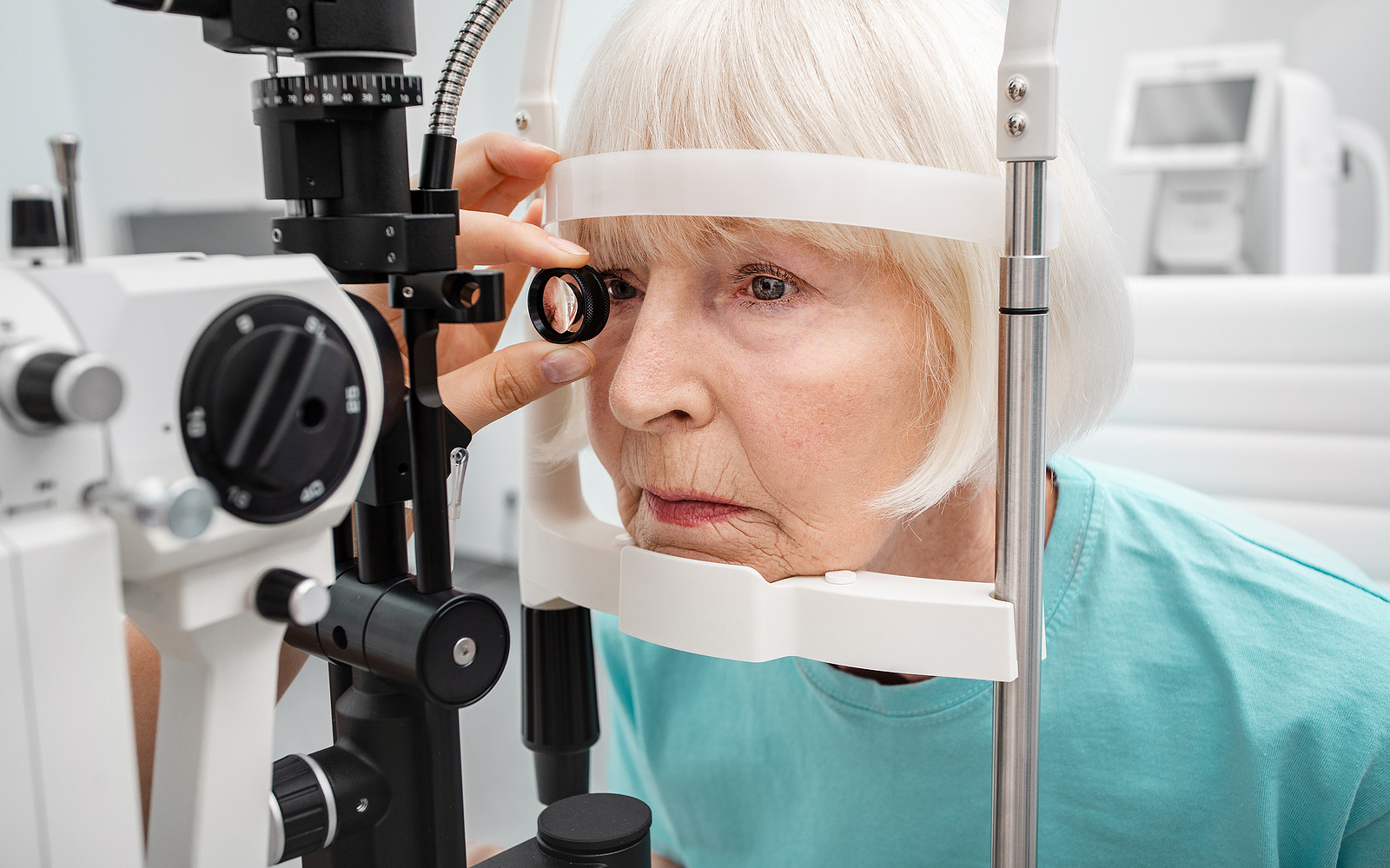8 Tips To Prevent Your Glaucoma from Worsening

Glaucoma, often referred to as “the silent thief of sight,” is a leading cause of blindness for people over 60. The eye continuously produces a fluid called aqueous humor. In healthy eyes, the fluid leaves the eye through the drainage angle as new fluid enters. Glaucoma occurs when the aqueous humor does not drain properly and builds up, increasing the intraocular pressure (IOP) and damaging the optic nerve. There are two primary types of glaucoma: open-angle glaucoma, which is the most common type and develops gradually, and angle-closure glaucoma (also called narrow-angle glaucoma), which can lead to acute attacks that require immediate attention.
The vision loss caused by glaucoma is irreversible. When left untreated, glaucoma can lead to blindness. However, early detection and proper management can significantly slow its progression. Here are eight crucial tips to help prevent glaucoma from worsening and maintain overall eye health.
1. Schedule Regular Comprehensive Eye Exams
Symptoms of glaucoma do not generally present until it has progressed into later stages. Half the people with glaucoma are unaware they have the condition. Comprehensive eye exams are critical in diagnosing and managing glaucoma, especially in its early stages , and should be scheduled annually or as recommended by your eye care provider. These exams can monitor glaucoma progression by performing a tonometry test to measure the IOP, examining the optic nerve with dilation and imaging, and conducting a visual acuity test.
2. Adhere to Your Medication Regimen
Strictly following your prescribed treatment plan is vital in managing glaucoma. Glaucoma medications, typically prescription eye drops, help reduce IOP and prevent further optic nerve damage. They work by helping fluid drain from the eye (like prostaglandins, rho kinase inhibitors, and miotics) or by decreasing the amount of fluid your eye produces (including alpha agonists, beta-blockers, and carbonic anhydrase inhibitors). Missing doses, stopping medication, or altering your regimen without your eye care provider’s explicit instruction can rapidly increase IOP and accelerate vision loss. Setting reminders on your phone or incorporating them into your daily routine can help ensure you take your medication consistently.
3. Eat a Balanced Diet
Although further research is needed to determine how or if diet is associated with glaucoma, studies have shown that a healthy diet can help protect your vision. A balanced diet rich in vitamins C and E, zinc, lutein, zeaxanthin, and omega-3 fatty acids can help support eye health and, in some cases, may decrease IOP. Be sure to incorporate plenty of colorful fruits and leafy green vegetables into your meals.
4. Get Regular Physical Activity
Regular physical activity promotes better health and can significantly benefit individuals with glaucoma. Exercise can help maintain blood flow to the optic nerve and manage other health conditions that may exacerbate glaucoma, such as diabetes and high blood pressure. Studies have shown that increased walking and moderate-to-vigorous physical activity are associated with slower visual field loss caused by glaucoma and can decrease the average rate of visual field loss by approximately 10%. However, some exercises may elevate IOP and should be performed with caution, such as strength training, or even avoided, like inversions in yoga. Always speak with your health care provider prior to beginning a new exercise routine.
5. Protect Your Eyes
Eye injuries can cause or worsen glaucoma. Wear protective eyewear when engaging in activities that could harm your eyes, such as sports, home repairs, or yard work. Even minor injuries can elevate IOP or cause other complications. In addition, glaucoma can cause eyes to be uncomfortably sensitive to glare. Wear polarized sunglasses and a wide-brimmed hat to protect your eyes from the sun’s UV rays.
6. Manage Stress
Chronic stress can contribute to elevated IOP and cause glaucoma symptoms to worsen, making it essential to incorporate stress-reducing activities into your daily routine. Prioritizing self-care and regularly practicing meditation, deep breathing exercises, and mindfulness can help maintain a lower IOP and support overall well-being.
7. Avoid Smoking and Limit Alcohol
Smoking and excessive alcohol consumption can negatively affect blood flow to the optic nerve and contribute to increased IOP. Quitting smoking and limiting alcohol intake can not only improve eye health and help slow the progression of glaucoma but also support a healthier overall lifestyle.
8. Stay Informed and Engaged
Managing glaucoma is a collaborative effort between you and your eye doctor. Inform your ophthalmologist of any medications you’re taking, particularly steroids or blood pressure medications, that could affect your IOP. Ask questions, attend all eye care appointments, and stay aware of any changes in your vision. Being proactive and engaged in your eye health can empower you to make informed decisions and advocate for your health.
Trust the Glaucoma Specialists at Swagel Wootton Eye Institute
For many glaucoma patients, prescription eye drops are sufficient in managing the condition. However, some patients may need systemic medications or glaucoma surgery. Our team at Swagel Wootton Eye Institute has extensive surgical experience with glaucoma patients of all types, and we are experts in minimally invasive glaucoma surgery. We provide the following glaucoma treatment options:
- Durysta® is the first and only FDA-approved dissolvable ocular implant that releases medicine to help reduce eye pressure inside the eye in patients with open-angle glaucoma or ocular hypertension.
- Laser peripheral iridotomy may be an option for narrow-angle glaucoma and acute-angle closure glaucoma.
- iStent®trabecular micro-bypass may be suitable for glaucoma patients who also require cataract surgery.
- Selective laser trabeculoplasty lasts between one and five years and is used to treat IOP caused by open-angle glaucoma.
Our team is committed to delivering quality outcomes and helping you achieve your optimal vision. Request your appointment today with Arizona’s glaucoma experts.
[DISPLAY_ULTIMATE_SOCIAL_ICONS]








